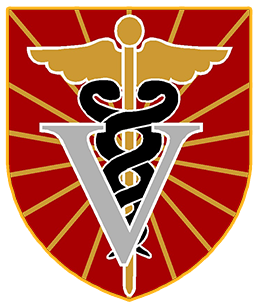The Doctor of Philosophy in Veterinary Medicine (Regular/Residential Mode) has three Core courses, three Major Courses, two Cognates, one Special Topic, one Graduate Seminar and one Dissertation. The three core courses will be offered by the three departments of the College to provide a wide background for the students, while the major courses will provide specialized topics according to the preferred research field of the students.
Program Requirements
1. The admission requirements of the University for existing programs shall be prescribed.
2. In addition, the applicant should be:
A. a licensed/certified veterinarian with a Master’s degree (Veterinary
Medicine or allied field)
Note: A veterinary license or a certification is a legal requirement under RA 9268
to be able to perform surgical procedures and formulate treatment protocols for
animals.
B. with at least two (2) research publication in a peer-reviewed journal.
Courses and Descriptions
BIOMEDICAL SCIENCE
BMS 301
ETHICS, BIORISK, AND BIOSAFETY IN ANIMAL RESEARCH (3 units). Theory and practices of ethics, and biorisk and biosafety assessment and management in the conduct of animal research
BMS 302
APPLIED ANATOMY AND PHYSIOLOGY OF LABORATORY ANIMALS (3 units). Structures and functions of the organ systems of laboratory animals in relation to their use in research and testing
BMS 303
LABORATORY ANIMAL CARE, USE AND TECHNIQUES FOR BIOMEDICAL RESEARCH (3 units). Management, health assessment and use of laboratory animals for biomedical research
BMS 304
LABORATORY ANIMAL SURGERY FOR BIOMEDICAL RESEARCH (3 units). Biomedical research surgical procedures in laboratory animals
VETERINARY PHARMACOLOGY
VPHM 301
VETERINARY ECOTOXICOLOGY (3 units). Ecotoxicological effects of pollutants on vertebrate animals
VETERINARY PUBLIC HEALTH
VPH 322
Applications of the ONE HEALTH Approach in Veterinary Medicine (3 units). Interdependence of humans, animals and the environment in animal disease control and prevention
VETERINARY ANATOMY AND PHYSIOLOGY
VMED 311
APPLIED ANATOMY OF THE EQUINE FOOT (3 units). Anatomical structures in the equine foot for accurate diagnosis and treatment of lameness
VMED 312
APPLIED VETERINARY NEUROANATOMY (3 units). Anatomical basis for the diagnosis of diseases of the nervous system of domestic animals
VETERINARY DIAGNOSTICS
VMED 321
ADVANCED VETERINARY DIAGNOSTICS (3 units). Application of advanced techniques for diagnosis of infectious animal diseases
VETERINARY MEDICINE
VMED 351
VETERINARY INTEGRATIVE MEDICINE (3 units). Natural, conventional and alternative approaches in the diagnosis and treatment of diseases and disorders of animals
VMED 352
VETERINARY ACUPUNCTURE (3 units). Principles and applications of acupuncture in animals
VMED 353
GASTROINTESTINAL HEALTH IN POULTRY (3 units). Advanced techniques in the diagnosis, treatment, prevention, and control of gastrointestinal diseases and disorders of poultry
VETERINARY DIAGNOSTIC IMAGING
VMED 361
APPLIED VETERINARY MEDICAL IMAGING (3 units). Applications of medical imaging in companion, farm and wild animal practice
VMED 362
VETERINARY REPRODUCTIVE ULTRASONOGRAPHY (3 units). Application of diagnostic ultrasound for reproduction in animals
VMED 363
VETERINARY ECHOCARDIOGRAPHY (3 units). Application of diagnostic ultrasound for cardiovascular diseases and disorders in animals
SPECIAL TOPICS
VMED 391
SPECIAL TOPICS IN VETERINARY MEDICINE (2 units)
GRADUATE SEMINAR
VMED 399
GRADUATE SEMINAR IN VETERINARY MEDICINE (1 unit)
PHD DISSERTATION
VMED 400
DOCTORAL DISSERTATION IN VETERINARY MEDICINE (12 units)
